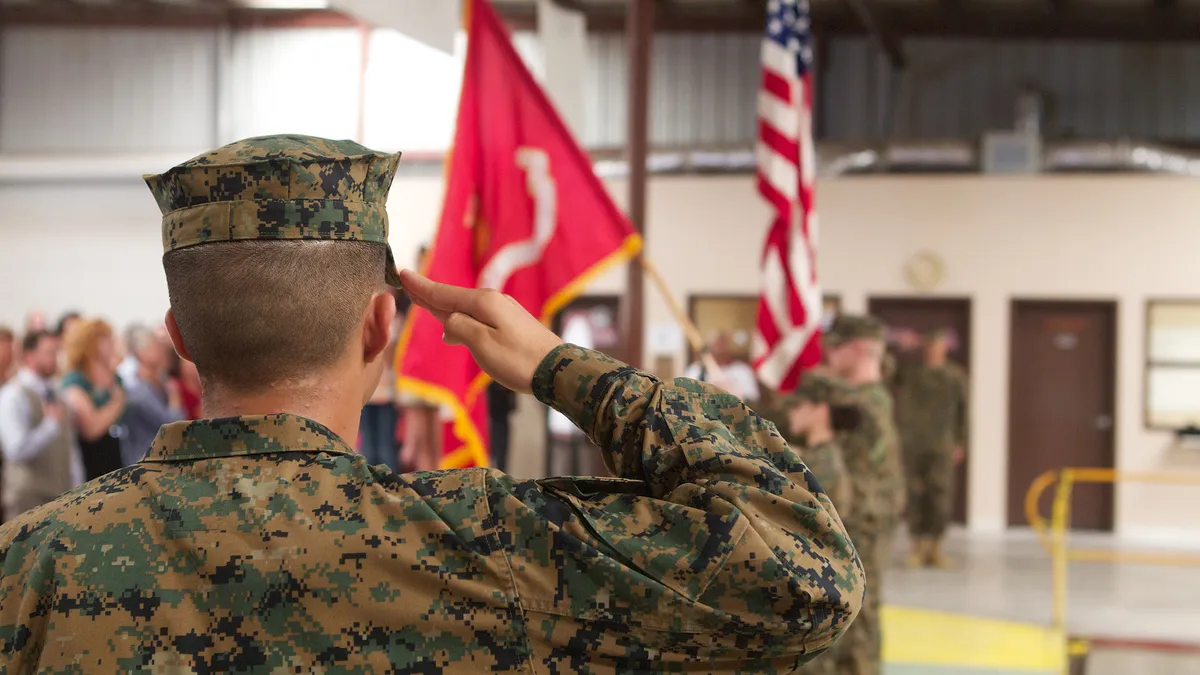In 2011, the American Council on Education released a report tracking 20 colleges and universities which used grant funding to develop resources for more than 870,000 veterans taking college courses under expanded G.I. Bill benefits.
A majority of the piloting institutions used the new funding to create transitional resources for veterans: courses on reentry into civilian life, understanding financial aid and academic eligibility requirements and mental health treatment were among the highlighted elements of a renewed national commitment to supporting active duty and discharged veterans.
Seven years later, that commitment continues at several colleges and universities throughout the country, which are using innovative approaches to help military members and their families pursue higher education in the second act of their professional careers.
Some of the resources, like the people they serve, are non-traditional in nature but meaningful in impact.
Training educators on military transition
Last summer, officials at Texas A&M University launched an innovative program to help faculty and staff members at its San Antonio campus better serve its growing veteran student population.
Using its annual summer orientation event as a backdrop, the campus introduced its Military Cultural Competency training program, a hybrid mini-course using online modules and in-person discussion groups designed to help employees learn the nuances of military culture, to better aid in teaching, mentoring and serving the veterans on campus.
Karen Kalmbach, a TAMU-SA associate professor and clinical psychologist with experience in mental health assessment for veterans, leads the initiative and says that targeted training was the ideal way to ensure that a campus with veterans accounting for 15% of its total student population received support necessary for success among most underrepresented student groups.
“Our university is unique in that we’ve made a commitment in supporting veteran students, but 90% of what we’re talking about applies to non-traditional students,” Kalmbach says.
Known as Military City USA, San Antonio is one of the largest residential areas for active and retired military members, and home to the nation’s largest military medical center.
Kalmbach says the training involves five modules which introduce participants to military culture, describing the population of students and their various service experiences, and talking about challenges with individual reentry and family management.
She says considerations about military-connected issues are particularly important in the scope of understanding veteran needs.
“The reason military-connected is important is that while 15% of our students are veterans, 3% of them are dependents, so even though they haven’t served, it is a whole culture that absorbs you and your family. The average military family moves every three years, and kids may have attended 5-6 schools, so it brings a unique set of characteristics to consider as a culture clash for some students. Between the military and higher education, there are many opposites veterans are trying to navigate; the military is an authoritarian system and is very team oriented. In college, it is very much about individual drive and capability. They sometimes can feel like they are in a freefall if goals and objectives aren’t stated explicitly.”
Supporting mental health outreach is key to veteran services
That struggle for some veterans was a key part of a new partnership between the University of Southern California and the Cohen Veterans Network, which last November opened a free mental health clinic on the Los Angeles campus.
The Steven A. Cohen Military Family Clinic at USC offers free assessment and resources to veterans and their families seeking treatment for a variety of mental health conditions. Officials say that USC was an ideal choice for partnership, given its long history of veteran outreach and research throughout a number of its academic departments.
“The university has had a very long history of support and collaboration going back to World War II, so this is the next evolution of care,” says Claudia Bustamante, Communications Manager for the Cohen Clinic at USC. “We’ve been involved with educational programs and research with the Departments of Social Work and Business, and so we saw this as an opportunity to move to the next phase, going from research to implementing support for veterans.”
Opened in October and funded through a three-year $15.7 million grant from the Network, the center headquarters support from faculty and staff from the USC School of Social Work and the Department of Psychiatry and Behavioral Sciences at the Keck School of Medicine of USC. Open once a week on the USC campus, the center extends services to veterans who may be ineligible for treatment at veterans medical facilities, specifically those with service in the National Guard or who left service without an honorable discharge.
Kalmbach says that investment in veterans helps university culture at large.
“We talk about the strengths and assets military students brings. Even if they are afraid that they don’t belong, they have leadership skills and have been responsible for millions in equipment and hundreds of people. They can help more traditional students better understand professional and academic priorities. They take leadership very seriously, and we just try to show them how those skills can be leveraged in a higher education environment.”


















